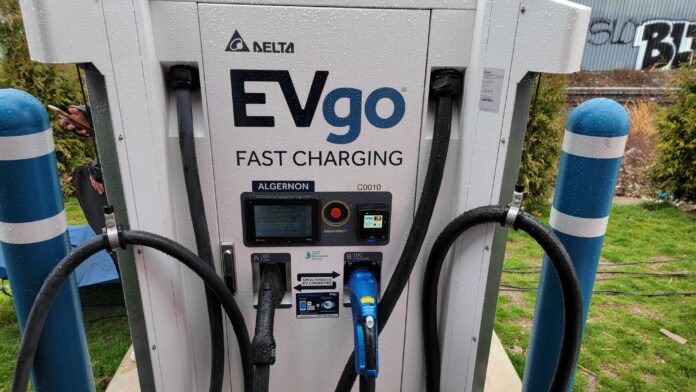Like its neighbors, Delaware faces significant transport and transportation challenges with a big increase in freight moving across state roads.
“Just over the last few years, especially during the pandemic, our reliance on e-commerce has just exploded and that results in the need for more trucking, for more freight movement, and we see that,” Majeski said. “It’s really important for us … (to) provide the infrastructure they need so they can embrace this clean energy that’s out there.”
Adam Ortiz, the administrator for EPA’s mid-Atlantic states, agrees that trucking should be a priority too.
“We’re all familiar with electric cars, we’re seeing them more and more and that’s been making a difference in reducing greenhouse gasses. But heavy trucks are something where we have historically not made a lot of progress,” Ortiz noted. “(Today), we’re putting a stake in the ground, a number of states across the I-95 corridor stepping up to help heavy electric vehicle charge.”
Across Delaware, Maryland, New Jersey and Connecticut, the goal is to establish over 400 charging ports for trucks, ranging from overnight charging stations to fast and even ultra-fast charging options.
“The Clean Corridor Coalition project plans to support the construction of 20 freight truck electric charging sites, including 150 charging ports, overnight use, and more than 300 fast or ultra-fast charging ports to advance electrification of a national priority freight corridor,” he said.
Next year, state transportation leaders will collaborate with the Delaware Department of Natural Resources and Environmental Control to gather public feedback and identify gaps in clean energy initiatives while continuing to prioritize sections of I-95 that run through the state. The focus will also extend to I-495 and other areas throughout the state.


